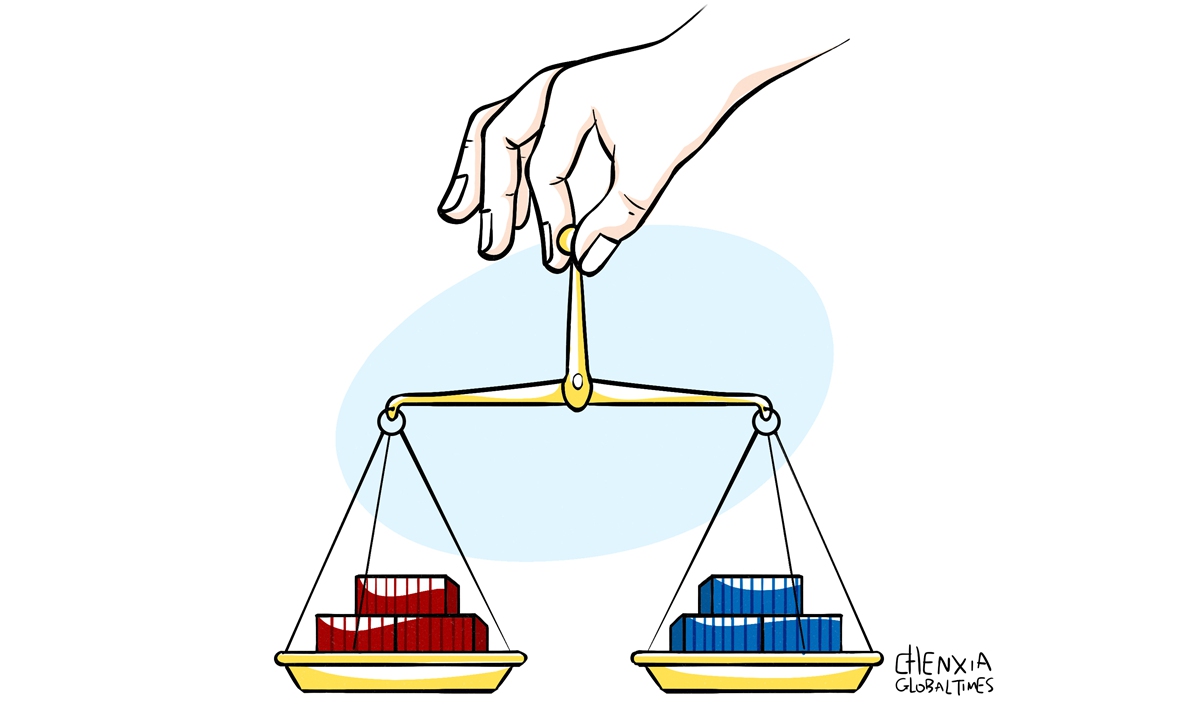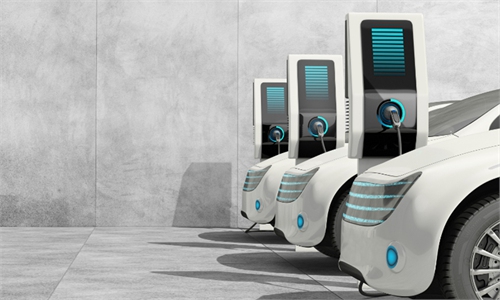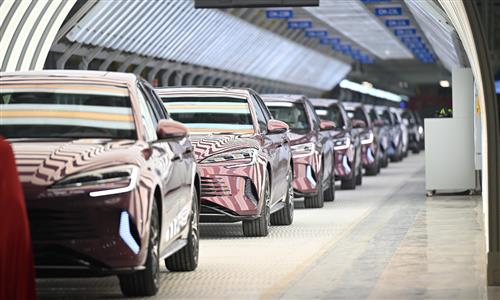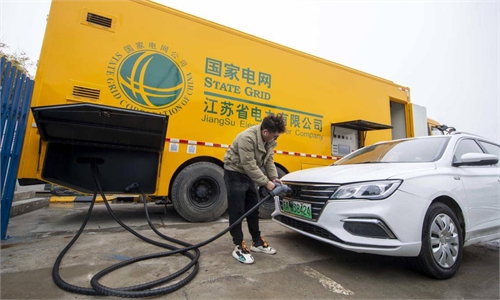
Illustration: Chen Xia/Global Times
The European Union (EU) believes ramping up pressure on China is the only way to tackle its trade deficit with the world's second-largest economy, and recently, Karel De Gucht, former European trade commissioner, claimed that the EU is "not hard enough" against China on trade issues, the Financial Times (FT) reported on Sunday.It is not surprising to see the former EU trade official using such rhetoric, as he carried out an anti-subsidy investigation on Chinese solar panel production in 2013. That investigation marked the beginning of Europe's hardline stance against China on trade, which was hyped by some members of the EU's political community.
De Gucht was right about one thing: The investigation and the resulting anti-dumping duties failed to save Europe's solar panel manufacturing sector, but he is completely wrong about his conclusion. It is not because the EU was not "tough enough" against China, but because such protectionism runs against normal trade rules and is always a move in the wrong direction to bolster European manufacturing.
It's concerning to see that such a hard and irrational tone on trade issues with China is becoming common among a group of hardline politicians in Europe, as the EU has moved to ramp up pressure on Chinese companies again.
During his latest visit to China, the EU Trade Commissioner Valdis Dombrovskis repeatedly emphasized the EU's trade deficit with China, and the EU launched an anti-subsidy investigation against Chinese electric vehicles (EV) despite China's strong objections.
These moves to impose pressure not only failed to address the EU's trade deficit with China, but also dented the positive momentum of bilateral trade cooperation. The anti-subsidy investigation launched by the EU against China lacks a factual basis and has seriously undermined fair competition.
If those politicians continue to push for more suppressive measures, it will cause further harm to China-EU trade and further affect European companies' trade with China. In response to the European Commission's anti-subsidy investigation against Chinese EV companies, European car manufacturers such as Volkswagen and BMW have expressed deep concern and even opposition, fearing the "boomerang" effect it may cause to them. European leaders should listen more to the voices of their industries and businesses in conducting trade with China.
Why don't European politicians heed the voices of businesses and draw the correct conclusions about the failed trade policies of the past? European politicians are using the China issue to gain so-called political leverage for themselves. It seems that these people always prioritize their own political interests above all else.
The European Parliament elections will take place in June 2024, and the politicians have started campaigning for votes. For an example, Ursula von der Leyen is expected to seek re-election as the president of the European Commission, according to European media reports.
As the election approaches, there may be an increase in cases of European politicians taking a tougher stance on China in order to score some political points for themselves.
This month, the European Commission confirmed it would levy provisional anti-dumping duties on some plastic imports from China. The EU has threatened to open an anti-subsidy case over wind turbine parts, the FT reported. Europe should be cautious and avoid exaggerating the irrational sentiment, which could lead to irreversible damage and losses in bilateral trade.
Since EU politicians invented the term "de-risking" earlier this year, it seems to gain more ground in Europe, though the term remains unclear in its specific meaning. Its actual impact on China's economic and trade policies has yet to be defined. This may be exactly what the European politicians want to achieve: Using vague and ambiguous languages to leave more room for waging protectionist measures to raise high barriers against China.
Such vague language may cater to different factions within the ranks of European politicians with different attitudes toward China, but the European politicians must understand that opportunism is not applicable to economic and trade policies toward China. This is because protectionist practices, selective containment and "decoupling" run against the principles of free and fair trade, and will only damage bilateral trade and ultimately backfire on European businesses.
Trade is fundamentally based on reciprocity and mutual benefit, requiring practices that are free, fair and transparent. This condition has been the foundation of successful bilateral trade between China and Europe in the past. European policymakers should be very cautious and avoid imposing excessive restriction and pressure on trade with China, as this may force China to take corresponding measures.
China and Europe are not in a zero-sum game. It has been proven that both sides can promote sustained and constructive growth of economic and trade relations while managing their differences properly, benefiting both economies. The EU should continue to avoid politicizing economic and trade issues and promote sustained and stable growth in trade with China.
The author is a reporter with the Global Times. bizopinion@globaltimes.com.cn



